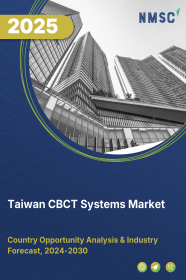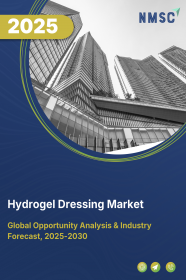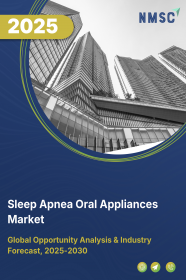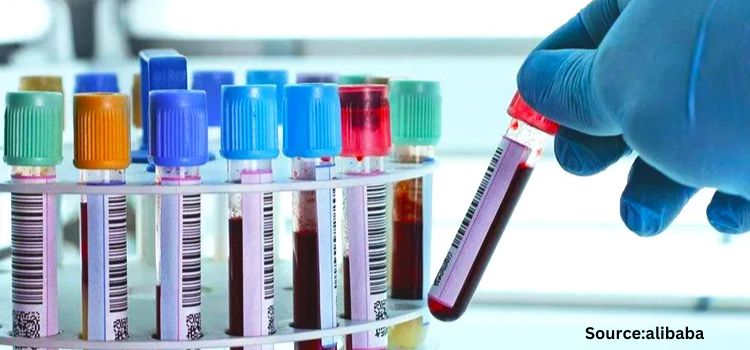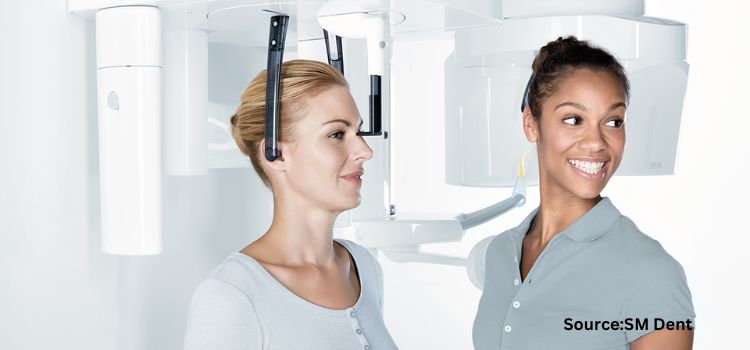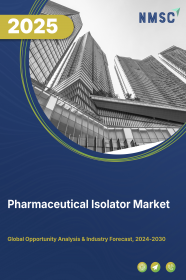
Pharmaceutical Isolator Market by Type (Open Isolator and Closed Isolator), by Pressure (Positive Pressure and Negative Pressure), by Configuration (Floor Standing, Mobile, and Table Top), by Application (Aseptic Isolators, Containment Isolators, Sampling/Weighing/Distribution Isolators, Fluid Dispensing Isolators, and Others), and Others – Global Opportunity Analysis and Industry Forecast, 2024–2030
Industry: Healthcare | Publish Date: 14-Feb-2025 | No of Pages: 304 | No. of Tables: 247 | No. of Figures: 226 | Format: PDF | Report Code : HC464
US Tariff Impact on Pharmaceutical Isolator Market
Trump Tariffs Are Reshaping Global Business
Market Overview
The global Pharmaceutical Isolator Market size was valued at USD 12.45 billion in 2023, and is predicted to reach USD 21.90 billion by 2030, with a CAGR of 8.4% from 2024 to 2030. A Pharmaceutical Isolator is a specialized enclosure crucial in the pharmaceutical and biotechnology sectors, serving as a controlled environment for the safe handling, processing, and manipulation of sensitive substances, such as pharmaceutical drugs and biologically derived materials.
By maintaining an airtight environment, isolators effectively shield the substances being processed from the outside world, minimizing the likelihood of cross-contamination and ensuring that the purity of the end product is maintained. Furthermore, the inclusion of glove ports or transfer systems allows personnel to work directly with the materials inside, providing a tactile connection while maintaining the isolator's sterile atmosphere. This feature is particularly significant while handling hazardous substances or those requiring the utmost sterility.
Additionally, the fine-tuned control over environmental conditions such as temperature, humidity, and air quality guarantees that the substances remain stable and unaltered during their time in the isolator. This level of control is especially beneficial in pharmaceutical research, where precise conditions are critical for experimentation and product development.
It also ensures that pharmaceuticals in such environments adhere to the most stringent quality standards and regulatory requirements, which are essential for patient safety and public health. In essence, pharmaceutical isolators are the protective shields that allow the pharmaceutical industry to deliver safe, potent, and effective medications to patients while maintaining the highest standards of quality and purity.
Growing Research & Development (R&D) Activities for Drug Discovery Drive the Market Growth
The pharmaceutical industry's strong focus on research and development activities, particularly in creating new and potent drugs, is driving a demand for more advanced isolator solutions. These isolators are crucial in ensuring safety during drug manufacturing, especially while working with strong and potentially harmful substances. They protect workers from exposure and help maintain the quality of the products.
As pharmaceutical companies continue to innovate, advanced isolator solutions are becoming increasingly important. They not only enhance safety but also reflect the industry's dedication to innovation and patient well-being. This emphasis on sophisticated isolator solutions will transform drug manufacturing and improve healthcare outcomes.
The Growing Prevalence of Chronic Diseases Across the Globe Propels the Market Growth
The increasing occurrence of various diseases worldwide fuels the need for a wide range of drugs and vaccines. This surge in demand is significantly contributing to the expansion of the pharmaceutical isolator market. As the global healthcare landscape faces continuous challenges, the pharmaceutical industry must develop more medications and vaccines than before to address these pressing health concerns.
Pharmaceutical isolators play a crucial role in ensuring the safe and sterile production of these life-saving products. Consequently, the pharmaceutical isolator market is experiencing substantial growth. It has become an indispensable part of the pharmaceutical supply chain, facilitating the production of drugs and vaccines to combat various diseases.
Noncommunicable diseases (NCDs), which encompass chronic conditions such as heart disease, diabetes, cancer, and respiratory disorders, have become a formidable global health challenge. Noncommunicable diseases claimed the lives of 41 million individuals annually, accounting for 74% of the total global mortality. The increasing fatalities attributed to chronic illnesses are fueling the need for advanced medications, thereby driving the expansion of the pharmaceutical isolator market.
High Iinitial Cost and Availability of Cheap Substitutes Restrain the Market Growth
The high cost of pharmaceutical isolators and the availability of cheap substitutes are the major factors restraining the growth of the pharmaceutical isolator market. These increased costs represent a formidable financial barrier, particularly for smaller pharmaceutical firms with limited budgets. Additionally, the availability of cheap alternatives such as such as Closed Restricted Access Barrier Systems (cRABS) further restricts the expansion of pharmaceutical isolators, restraining the growth of the market.
The Introduction of Automation and Robotics Creates Significant Opportunities for Market Growth
The incorporation of automation and robotics into pharmaceutical isolators is set to revolutionize the industry. This cutting-edge technology promises increased precision, heightened safety, and long-term cost savings. By automating critical manufacturing processes, pharmaceutical companies can produce medicines with unparalleled accuracy and ensure top-tier product quality. The reduced need for manual labor not only minimizes the risk of contamination but also enhances worker safety, fostering a healthier and more efficient work environment.
For instance, in July 2023, Metall+Plastic, a prominent player in the pharmaceutical industry, launched a state-of-the-art isolator system designed to create a safer and more secure environment for drug manufacturing. This integration of automation in pharmaceutical isolators is poised to play a pivotal role in the sector's ongoing evolution, ensuring safer, more efficient, and cost-effective drug production than before.
North America is Projected to Hold the Dominant Share in the Pharmaceutical Isolator Market
The presence of a robust pharmaceutical industry in North America is acting as a driving force behind the growth of the pharmaceutical isolator market. Significant research and development activities, advanced manufacturing processes, and a focus on stringent quality standards characterize the pharmaceutical sector in this region.
As a result, there is a growing demand for technologies such as pharmaceutical isolators, which are crucial for ensuring the integrity and safety of pharmaceutical products. The need to maintain aseptic conditions, prevent contamination, and meet strict regulatory requirements is pushing pharmaceutical companies in North America to invest in pharmaceutical isolators, fueling the market's expansion in this region.
The U.S. pharmaceutical industry is one of the largest and most influential in the world. In 2021, nearly 310,574 pharmaceutical companies operating within the country, collectively generated a substantial revenue of USD 550 billion. It is anticipated to reach an estimated range of USD 605–635 billion by 2025. These figures underscore the enduring significance of the U.S. pharmaceutical sector on both national and global scale, driven by innovation, research, and a commitment to advancing healthcare solutions.
Moreover, the enforcement of rigorous government regulations about drug development and discovery further boosts the growth of the market in this region. These stringent regulations mandate the highest standards of safety, quality, and contamination control throughout the pharmaceutical manufacturing process. In the U.S., the process of drug discovery and development is marked by rigorous and time-consuming regulatory procedures.
The U.S. Food and Drug Administration (FDA) assumes a pivotal role in guaranteeing the safety and effectiveness of pharmaceuticals. Simultaneously, the Centers for Medicare & Medicaid Services (CMS) holds importance in overseeing healthcare coverage and reimbursement matters. In response to these requirements, pharmaceutical companies increasingly use isolator technology to ensure compliance, enhance product quality, and maintain aseptic conditions. As a result, the demand for pharmaceutical isolators is rising in North America, making them a critical component of the pharmaceutical industry's landscape.
Asia-Pacific is Expected to Show Steady Growth in the Pharmaceutical Isolator Market
The growing drug discovery and testing in countries such as China, India, and Japan, driven by the rising pharmaceutical industry in Asia-Pacific, is raising the demand for pharmaceutical isolators. They play a crucial role in keeping medicines safe and of high quality. As companies in this region focus on research and development, the need for these isolators is rising due to their crucial role in maintaining sterile conditions and meeting strict rules.
As per the report published by the National Library of Medicine in 2022, out of a total of 9,609 medicines currently in active research and development worldwide, 32% or 3,075 drugs are either being developed by Chinese companies or have been licensed to them. This statistic underscores China's growing influence in the global pharmaceutical industry, as it takes a substantial share of new drug development initiatives. Moreover, it contributes significantly to the evolving landscape of pharmaceutical research and innovation.
The increasing prevalence of chronic diseases in the Asia-Pacific region is fueling the demand for pharmaceutical isolators, thereby propelling the growth of the pharmaceutical isolator market. As chronic diseases become more common, there is a heightened need to produce medications that meet the highest standards of safety and quality.
Pharmaceutical isolators are instrumental in maintaining sterile and controlled manufacturing environments, preventing contamination, and ensuring the integrity of these vital medications. Consequently, the surge in demand for pharmaceutical isolators in response to the growing chronic disease burden is a driving force behind the market's expansion within the Asia-Pacific region.
As per the latest report published by the National Institutes of Health, it is estimated that a substantial 180 million individuals in China are suffering from chronic diseases. This data highlights the growing demand for holistic healthcare approaches to ensure the safety and efficacy of medications, a field where pharmaceutical isolators are essential.
Competitive Landscape
Several market players operating in the pharmaceutical isolator industry include Comecer S.p.A., Skan AG, Robert Bosch GmbH, Tema Sinergie S.p.A., Getinge AB, Azbil Telstar, S.L., JCE Biotechnology, Deck USA, Hosokawa Micron Ltd., ESCO Technologies, Inc., ITECO S.R.L., Schematic Engineering Industries, Nuaire, Inc., Gelman Singapore, ILC Dover, LP, and others. These companies are adopting strategies such as acquisition and product launches to remain dominant in the market.
For instance, in July 2023, Skan Group AG acquired an 80% stake in Aseptic Technologies, known for its contributions to the field of aseptic processing, which is a core component of pharmaceutical isolator technology. Skan's investment is aimed at enhancing its capabilities in this critical area for advancements in the development and utilization of pharmaceutical isolators to ensure sterile conditions in pharmaceutical manufacturing. This will contribute to the growth and innovation of pharmaceutical isolator solutions.
Moreover, in October 2022, Tema Sinergie launched a novel four-glove pharmaceutical isolator designed for sampling sterile powders and handling large containers. This innovative technology caters to the precise and hygienic requirements of pharmaceutical and biopharmaceutical manufacturing processes. The four-glove isolator signifies advancements in providing controlled and contamination-free environments for critical pharmaceutical operations, further enhancing the capabilities and options available in the pharmaceutical isolator market.
Furthermore, in April 2021, ILC Dover launched the SoloPure Flexible Aseptic Isolator to redefine sterile manufacturing. This innovative technology caters to the pharmaceutical and biopharmaceutical industries, offering an adaptable and secure solution for aseptic processing. The SoloPure Isolator enhances the efficiency and safety of drug manufacturing processes, contributing to the advancement of sterile production methods.
Key Benefits
-
The pharmaceutical isolator market report provides a quantitative analysis of the current market and estimations from 2024 to 2030. This analysis assists in identifying the prevailing market opportunities to capitalize on.
-
The study comprises an extensive analysis of the current and future pharmaceutical isolator market trends, depicting the prevalent investment pockets in the market.
-
The information related to key drivers, restraints, and opportunities, and their impact on the pharmaceutical isolator market is provided in the report.
-
The competitive analysis of the key players along with their market share in the pharmaceutical isolator industry, is provided in the report.
-
The SWOT analysis and a Porter's Five Forces model is elaborated on in the study.
-
The value chain analysis in the market study provides a clear picture of the stakeholders’ roles.
Pharmaceutical Isolator Market Key Segments
By Type
-
Open Isolator
-
Closed Isolator
By Pressure
-
Positive Pressure
-
Negative Pressure
By Configuration
-
Floor Standing
-
Mobile
-
Table Top
By Application
-
Aseptic Isolators
-
Containment Isolators
-
Sampling/Weighing/Distribution Isolators
-
Fluid Dispensing Isolators
-
Others
By End User
-
Hospitals
-
Pharmaceutical & Biotechnology Companies
-
Research & Academic Laboratories
-
Others
By Region
-
North America
-
The U.S.
-
Canada
-
Mexico
-
-
Europe
-
The U.K.
-
Germany
-
France
-
Italy
-
Spain
-
Denmark
-
Netherlands
-
Finland
-
Sweden
-
Norway
-
Russia
-
Rest of Europe
-
-
Asia-Pacific
-
China
-
Japan
-
India
-
South Korea
-
Australia
-
Indonesia
-
Singapore
-
Taiwan
-
Thailand
-
Rest of Asia-Pacific
-
-
Rest of the World (RoW)
-
Latin America
-
Middle East
-
Africa
-
Key Players
-
Comecer S.p.A.
-
Skan AG
-
Robert Bosch GmbH
-
Tema Sinergie S.p.A.
-
Getinge AB
-
Azbil Telstar, S.L.
-
JCE Biotechnology
-
Deck USA
-
Hosokawa Micron Ltd.
-
ESCO Technologies, Inc.
-
ITECO S.R.L.
-
Schematic Engineering Industries
-
Nuaire, Inc.
-
Gelman Singapore
-
ILC Dover, LP
REPORT SCOPE AND SEGMENTATION:
|
Parameters |
Details |
|
Market Size in 2023 |
USD 12.45 Billion |
|
Revenue Forecast in 2030 |
USD 21.90 Billion |
|
Growth Rate |
CAGR of 8.4% from 2024 to 2030 |
|
Analysis Period |
2023–2030 |
|
Base Year Considered |
2023 |
|
Forecast Period |
2024–2030 |
|
Market Size Estimation |
Billion (USD) |
|
Growth Factors |
Growing R&D in drug discovery and development Rising prevalence of chronic disease |
|
Countries Covered |
28 |
|
Companies Profiled |
15 |
|
Market Share |
Available for 10 companies |
|
Customization Scope |
Free customization (equivalent up to 80 working hours of analysts) after purchase. Addition or alteration to country, regional, and segment scope. |
|
Pricing and Purchase Options |
Avail customized purchase options to meet your exact research needs. |

















 Speak to Our Analyst
Speak to Our Analyst



